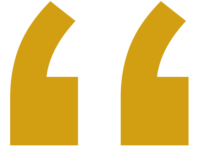
Will We Work from Home Forever?
by Aaron Chernow • 06/01/2020
There’s nothing like looking up after a few hours of deep focus—head still very much in the work—only to be yanked back into reality by a request to take out the garbage.
Over the past couple of months, work and personal life have co-mingled more than ever.
I think “work-life balance” has never been a useful concept. Achieving work-life balance is a lot like trying to balance time spent thinking with time spent breathing. Work is not separate from life – it’s a part of life.
That’s always been true. But we feel it more now.
There’s a great quote attributed to James Michener:

“The master in the art of living makes little distinction between his work and his play, his labor and his leisure, his mind and his body, his education and his recreation, his love and his religion. He hardly knows which is which. He simply pursues his vision of excellence at whatever he does, leaving others to decide whether he is working or playing. To him he is always doing both.”
The specifics of our lives shift – where and how we spend our time can change from second to second. But when we’re the masters of our lives, all our activities in their many forms are bound together and made cohesive by our “vision of excellence.”
Or, in other words, by our foundational values.
On a practical level, the order of our priorities fluctuates from day to day according to urgency and importance. If an employee calls me and needs my help, I’m going to help, whether it’s outside work hours or not. And when important personal events happen during working hours, I’ll shift to give them my full attention.
Feeling good about how you prioritize comes down to being sure that you have clear values.
Our values as leaders, employees, and as people have been put to the test. Some values we held closely before the pandemic are going to fade, while others have already begun to loom larger and larger.
Here’s a set of (obvious) conflicting values: how do you weigh the power of in-person community against the fear of disease?
Your answer will also color your response to this question: Will the office return to its central position in our working lives, or are will we mostly work from home… forever?
The last couple months have put the #WFH movement to the test.
True, it hasn’t been a clean experiment. The Coronavirus and all its consequences are confounding variables. The virus has dragged all sorts of fear, hardship, and grief into our lives (and home offices) that aren’t usually there. When people are productive working from home in these circumstances, it’s despite many, many obstacles.
But I wonder, as many have: once stay-at-home orders are lifted and the economy opens back up, how will our newly formed fears and desires reshape the workplace? Will we give up the office and embrace distributed teams as a permanent and logical way to operate?
Before the pandemic, I never fully embraced the WFH movement because I thought it would lead to too many losses – of energy, culture, community.
For some leaders, working from home is a scary proposition because they think accountability disappears as soon as employees know their boss can’t surprise them by walking in the room. But that’s really a hiring problem, not a remote work problem. This time has certainly proven that I have the right people on my team.
My concern has more to do with understanding the people with whom I work and sharing in the collective energy. I love walking around my office, reading people’s faces and body language. Management by walking around – for me – isn’t about making sure people are at their desks working. It’s about intuiting their wellbeing, figuring out if they need something to help them thrive, and sharing in the momentum of the group.
I miss being able to do that.
As an “essential” worker, I’ve spent many hours over the past 7 weeks at an office that usually houses 120 employees, but instead has had only 4. The experience has thrown into sharp relief what a difference a community makes – without one, there’s so much less spirit and drive.
The Brightwing team has already spent so much time together building relationships, and that has made the abrupt transition to remote work easier. We have video calls. We even use Zoom or FaceTime to be together while working separately. Telepresence has absolutely helped us through this big change.
But it’s a very different story when teambuilding is virtual from the start.
The WFH movement has had its ups and downs over the last few decades.
IBM had a highly distributed work force from the 1980s until they worked to bring them back on-location in 2018. Yahoo had a remote work policy until Marissa Mayer ended it in 2013. #WFH evangelists are shouting from the rooftops, now, about how finally we’ll all experience what they’ve been preaching.
On one hand, it’s been shown that remote workers are on average more productive than their in-office peers.
But on the other hand, sharing an office allows for spontaneous collaboration and innovations that could outweigh gains in productivity (named the “water cooler effect”).
Distributed teams allow you to cut overhead costs, but team- and culture-building become significantly more difficult.
A hybrid model may be the right solution. We’ve had a flexible model at Brightwing for years, but it’ll require some tweaking as we re-open the office.
Here are a few considerations:

WFH days could be reserved for deep work and in-office days for collaboration and coordination.

Company- or department- wide WFH schedules may be set. When everyone can choose their own WFH day(s) of the week, the office can feel half-empty every day. If everyone works from home on Wednesdays, the office is full and energetic for the other 4 days.

Make your sick day policy generous, and genuinely encourage staying home at even the first sign of illness.
I do know this – whatever answer we arrive at for Brightwing, it won’t be permanent.
Like we’ve learned and recently felt so acutely, circumstances change quickly. And we need to recognize the change and respond as well as we can.
In a month we may mix remote and office work, and in a year, we may need to throw in options for working from the moon. But as a team with a clear set of values, I know we’ll rise to the occasion.
let us know if we can help
SEND US A MESSAGE

